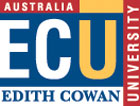Master of Bioinformatics
Master of Bioinformatics
This course provides students with skills and experience in bioinformatics, focusing on omics science, computer programming, applied mathematics and statistics. It provides work experience in relevant organisations within the industry, allowing students to gain an understanding of the application of bioinformatics in a real world context. It also focuses on…
Categories
COURSE DESCRIPTION
This course provides students with skills and experience in bioinformatics, focusing on omics science, computer programming, applied mathematics and statistics.
It provides work experience in relevant organisations within the industry, allowing students to gain an understanding of the application of bioinformatics in a real world context. It also focuses on practical skills for researchers and industry professionals in bioinformatics, and offers flexible study options through on-campus and off-campus study.
Course learning outcomes
Reflect critically on a complex body of specialist knowledge and understanding of recent developments and methods applicable to the field of Bioinformatics and related disciplines.
Investigate, analyse and synthesise complex ideas, concepts and theories in Bioinformatics.
Apply communication skills to design innovative contributions to professional practice in Bioinformatics.
Use high level self-management skills to initiate, plan and execute a substantial project or contribution to professional practice in Bioinformatics.
Career Opportunities
This course places students with an industry/organisation for their semester-long project. The placement will enable students to undertake a bioinformatics project or professional placement with a host supervisor, as well as getting direct exposure to the nature of the organisation and its priorities. This provides an excellent springboard for employment following this degree. Employment opportunities will be in local government, industry, state, national government and non-government organisations, particularly in the biological, medical and research sectors.
Possible future job titles
Bioinformatician, computational biologist, computational chemist, computational scientist, systems biologist, clinical bioinformatician, data scientist, data analyst, informatician, biometrician.
REQUIREMENTS
Special entry may be considered for students with a cognate first degree (or with appropriate experience) who can apply for a reduced course duration:
1.5 years full time (3 years part time) – 180 credit points
Admission is based on:
Bachelor degree in a related discipline, or
Bachelor degree in any discipline, plus five years relevant work experience^, or
Graduate Certificate of Bioinformatics (or equivalent), or
Evidence of academic capability judged to be equivalent.
Related discipline refers to any chemistry/biology discipline
^Relevant work experience constitutes Senior/Managerial positions to be approved by the Course Coordinator.
Academic admission requirements (Band 6) may be satisfied through completion of one of the following:
Bachelor degree; or
Equivalent prior learning including at least five years relevant professional experience.
English competency requirements:
IELTS Academic: An overall band minimum score of 6.5, with no individual band less than 6.0.) (Results are typically valid for 2 years and online tests are not acceptable.)
TOEFL iBT: TOEFL iBT: 84 (with no score below 17)
TOEFL Paper-Based Test (PBT): Minimum score of 573, including Test of Written English of 5.0 or better. (Results are typically valid for only 2 years)
Pearson Test of English (PTE): PTE Academic 58, with no score less than 50 for postgraduate standard entry courses. (Results are typically valid for only 2 years)
EDUCATIONAL INSTITUTION
Edith Cowan University (ECU) is a large, multi-campus institution serving communities in Western Australia and internationally.ECU was awarded university status in 1991, but despite its relative youth, the University has a proud history of more than a century of service to education in Western Australia and is recognised for its teaching and learning, excellence in research, and partnerships with the community.We have more than 23,300 students, including around 18,500 undergraduates and 4,800 postgraduates. Approximately 3,600 international students attend the University, originating from 104 countries.We are a progressive University with courses developed through ongoing industry input, and employing lecturers who engage fully with their students. We’re a university that knows while knowledge is important, understanding comes from experience –experience that enables you to adapt what you’ve learned to whatever opportunities come your way. Because that’s when you do more than just survive in this world. You thrive in it.




